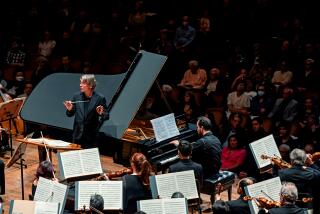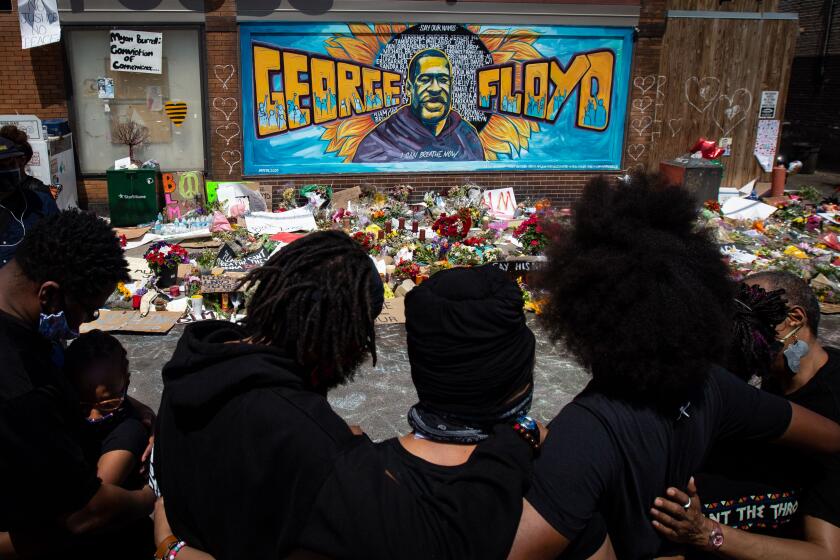MUSIC REVIEW : Southwest Chamber Salutes Nono at Chapman
- Share via
ORANGE — In 1976, Luigi Nono wrote a funereal work prompted by a series of deaths that had swept his family and that of his friend, pianist Maurizio Pollini. Thursday night, at Salmon Recital Hall on the campus of Chapman College, the Southwest Chamber Music Society offered “ . . . sofferte onde serene . . . “ as a tribute to its composer, who died last May.
According to the artistic director of the society, Jeff von der Schmidt, the piece--for piano and prepared tape--invokes church bells ringing throughout Venice. The live piano part typically exploits a single range at a time, occasionally two very separate sections of the keyboard, while tape and piano mingle as expansions of one another.
In the capable hands of pianist Gloria Cheng, accompanied by a tape of Pollini, “. . . sorrowful yet serene waves . . .” emerged as a series of clusters slowly evolving in nervous rhythms. Cheng’s minute exploration of the sonic and rhythmic possibilities of her instrument demanded and received an attentive hush for its full 15 minutes.
Beethoven’s Sonata for piano and cello, Opus 102, No. 2, and his “Ghost” Trio flanked the contemporary work. Both gave ample opportunity to their protagonists--violinist Peter Marsh, cellist Richard Treat and pianist Cheng--to wring out every drop of Angst appropriate to this commemorative program.
The trio, in particular, thrived amidst a larger-than-life conception marked by pristine rhythmic precision and lean, pointed tone. Opening movements of each opus commanded an exciting sense of competition, contrasted by brief, achingly lyric interludes.
Ensemble members paid rapt attention to one another, indulging in relentlessly intense soul-searching for the Largo of the trio, charging forward through dynamically shaped phrases propelled by emphatic accents in the Presto.
Only in the Adagio of the cello sonata did ensemble seem less than flawless. Here, much of the repartee between the duo passed unnoticed, though, individually, the players remained involved and absorbing. Still, Cheng and Treat closed the sonata with a powerful and intelligently illuminating Allegro fugato that built briskly to inevitable climaxes.
More to Read
The biggest entertainment stories
Get our big stories about Hollywood, film, television, music, arts, culture and more right in your inbox as soon as they publish.
You may occasionally receive promotional content from the Los Angeles Times.










